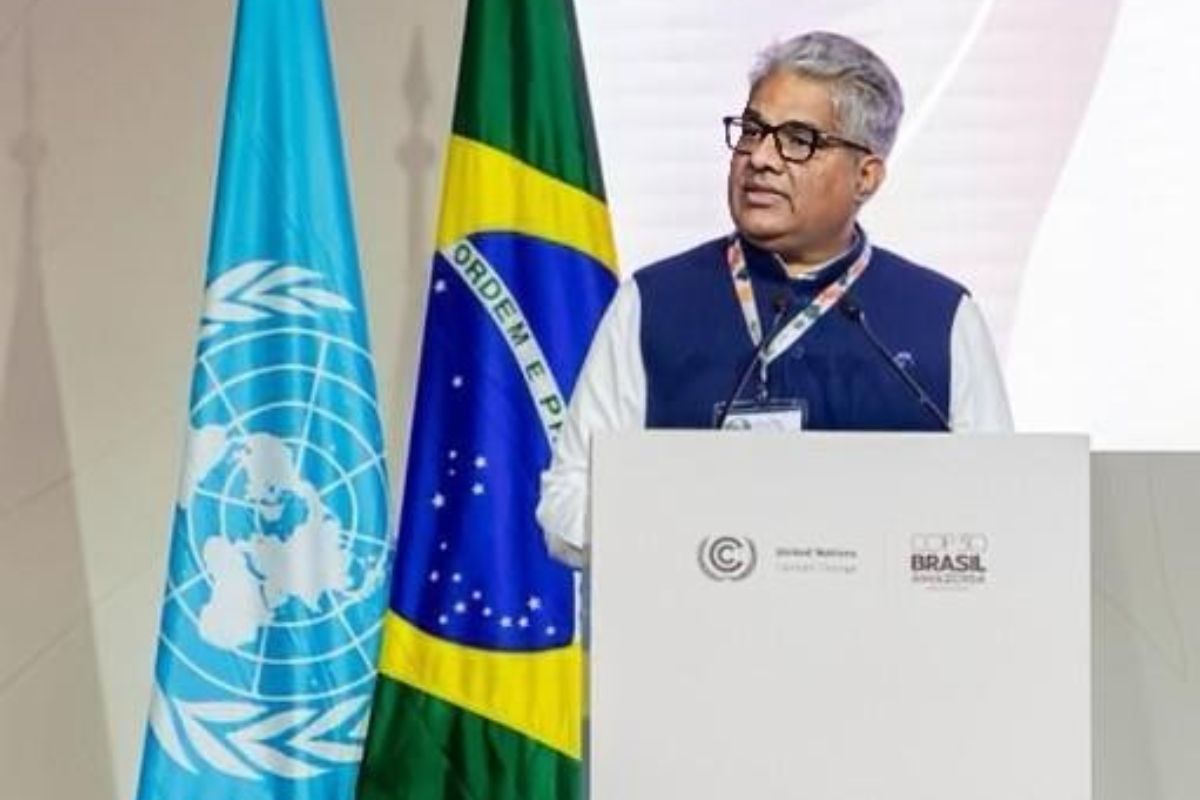Union Environment Minister Bhupender Yadav used the global climate platform at COP30 in Belém, Brazil, to press developed countries to act faster and deliver stronger support for climate action. He delivered India’s national statement at the High-Level Segment of the UN climate conference on November 17 and called for the meeting to be remembered as a “COP of Implementation” and a “COP of Delivery on Promises.”
India presses richer nations harder
Yadav opened his address by thanking Brazil for hosting the summit in the Amazon, which he described as “a living symbol of our planet’s ecological wealth.” He said the location underscored the urgency of protecting ecosystems and supporting countries that face growing climate risks.
The Minister urged richer nations to raise their climate ambition and meet the commitments they have made for years. He said, “Developed countries must reach net zero far earlier than current target dates and deliver new, additional, and concessional climate finance at a scale of trillions, not billions.” He also said climate technology must be affordable and free of restrictive intellectual property limits.
Yadav highlighted India’s record on lowering emissions and expanding clean energy. He said India’s emission intensity has fallen by more than 36 percent since 2005. He noted that non-fossil sources now make up over half of India’s installed power capacity, reaching about 256 gigawatts. India met this target five years ahead of its 2030 deadline. He said the country will submit its revised climate targets up to 2035 and file its first Biennial Transparency Report on schedule.
India highlights climate action initiatives
He pointed to India’s role in global partnerships such as the International Solar Alliance and the Global Biofuel Alliance. He said new programmes like the Nuclear Mission and the Green Hydrogen Mission are shaping India’s long-term shift toward net zero by 2070.
Yadav also drew attention to national efforts to restore carbon sinks. He said communities across the country planted more than two billion plants in sixteen months. He called this an example of how collective action can shape climate outcomes at scale.
The Minister ended his statement by reaffirming India’s commitment to climate cooperation and climate justice. He said the world must treat the next decade as a period focused on implementation, resilience, and shared responsibility.
Support us to keep independent environmental journalism alive in India.
Keep Reading
Small Wild Cats in Big Trouble: India’s First National Report Released
Forest Diversion Crosses 78,000 Hectares, Afforestation Lags
Stay connected with Ground Report for underreported environmental stories.
Follow us onX, Instagram, and Facebook; share your thoughts at greport2018@gmail.com; subscribe to our weekly newsletter for deep dives from the margins; join our WhatsApp community for real-time updates; and catch our video reports on YouTube.
Your support amplifies voices too often overlooked, thank you for being part of the movement.






